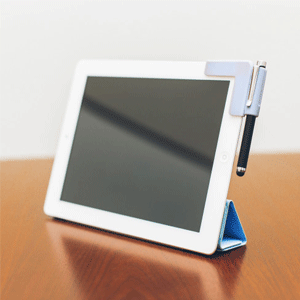
Many illnesses (including influenza, diarrhoea, pneumonia, cholera and chickenpox) are caused by viruses or bacteria being transferred from person to person by direct contact. Therefore the single most important thing we can do to improve public health is wash our hands.
Although for some, washing your hands may have been instilled at a very young age, you would be surprised by how many people don't do it. A study has found that 10% of people don't wash their hands after using the toilet while 33% do, but don't use any soap.
Health24's resident doctor, Owen Wiese, says that there may even be a hand-washing crisis in state hospitals.
Dirty hands make for dirty contact with everyday items
Research found that germs are spread through overlooked items found in plain sight. For example, publicly shared pens can carry over 40 times more germs by area than an average toilet seat.
Similarly, the stethoscope around a doctor's neck is one of the least-cleaned items in the health care system with an average minimum of 5 patients treated between cleanings.
Further studies showed that the level of bacterial transfer from a stethoscope was equal to that of a doctor using unwashed hands. These factors, it is estimated by the Centers for Disease Control in the US are responsible for up to 1.7 million hospital infections per year in America of which up to 99,000 result in death.
According to an article for Health24 on hospital-acquired infections reviewed by Dr Andrew Whitelaw, Department of Microbiology, University of Cape Town, in developed countries, about 5 to 10% of patients admitted to acute care hospitals acquire an infection which was not present or incubating on admission.
The rate for developing countries can exceed 25%. The statistics for South Africa probably fall somewhere in between these numbers. Unfortunately there are no good, large scale surveys of nosocomial infection rates in South Africa.
Read: Germ-killing soaps promise to cut hospital infections
How to stop the spread of germs
One way to combat the problem is to create products that make it easier for us to not spread germs. Which is exactly what South Africans Tim Uys and Kevin Finlay did.
Tim Uys, a South African industrial designer joined the Austin Texas (USA) company, Cleanint in 2011 after seeing an overwhelmingly positive response to the hygiene solutions products in the US market. Together with his friend Kevin Finlay, an engineer from Freestate, South Africa, they acquired rights to distribute Cleanint products across southern African soil.
Tim says: "The short term plan is to import but the longer term plan is to use this opportunity to not only improve health in southern Africa but also to develop job opportunities and impact communities where possible."
Talking about the CleanStethoscope, Tim says: "This product along with a number of other innovative infection control products, is already being used across the US, Canada, Australia countries in Asia and Africa and has been well received by leading emergency medical technicians, doctors and nursing staff as well as being adopted for use by police in schools and even the hospitality industry to reduce sick days."
Cleanint’s simple solution is capable of dealing with anything from the most common flu virus to the highly dangerous antibiotic resistant super-bugs such as MRSA (Methicillin-resistant taphylococcus aureus).
Some of Cleanint's hygiene solutions products:
Clean hands
Because we don't always have access to soap and water, we aren't always able to wash our hands.
Cleanint has developed a hand-sanitising pouch that slides on to your belt. The pouch consists of compartments that can hold your hands sanitiser as well as rubber gloves to make washing your hands more convenient.
The clean pen
The average pen will have 8 owners and multiple users throughout its lifespan. Because it's almost impossible to avoid sharing pens at some point, Cleanint has invented a holder to clean your pen. The holder contains a disinfecting sponge that will sterilise the pen when it is placed in the holder.
Clean Stethoscope
In a 600 bed hospital, 100% of the stethoscopes tested positive for bacteria growth. Cleanint designed the clean-stethoscope, a sterilising magnetic holder that can be attached to one's chest or clothing to make cleaning a stethoscope more convenient. The holder is shaped like a stethoscope and contains an aseptic sponge which the stethoscope slides into.
Both Tim and Kevin are excited about making these products available locally and believe that it can have a significant impact on our local communities. For more info, contact Kevin Finlay.
Read more:
Anaesthesiologists need to improve hand hygiene
10 Revolting Hygiene Facts
How often do you hand-wash?
How dirty are your hands?
Sources: Cleanint.com; Health24




 Publications
Publications
 Partners
Partners














